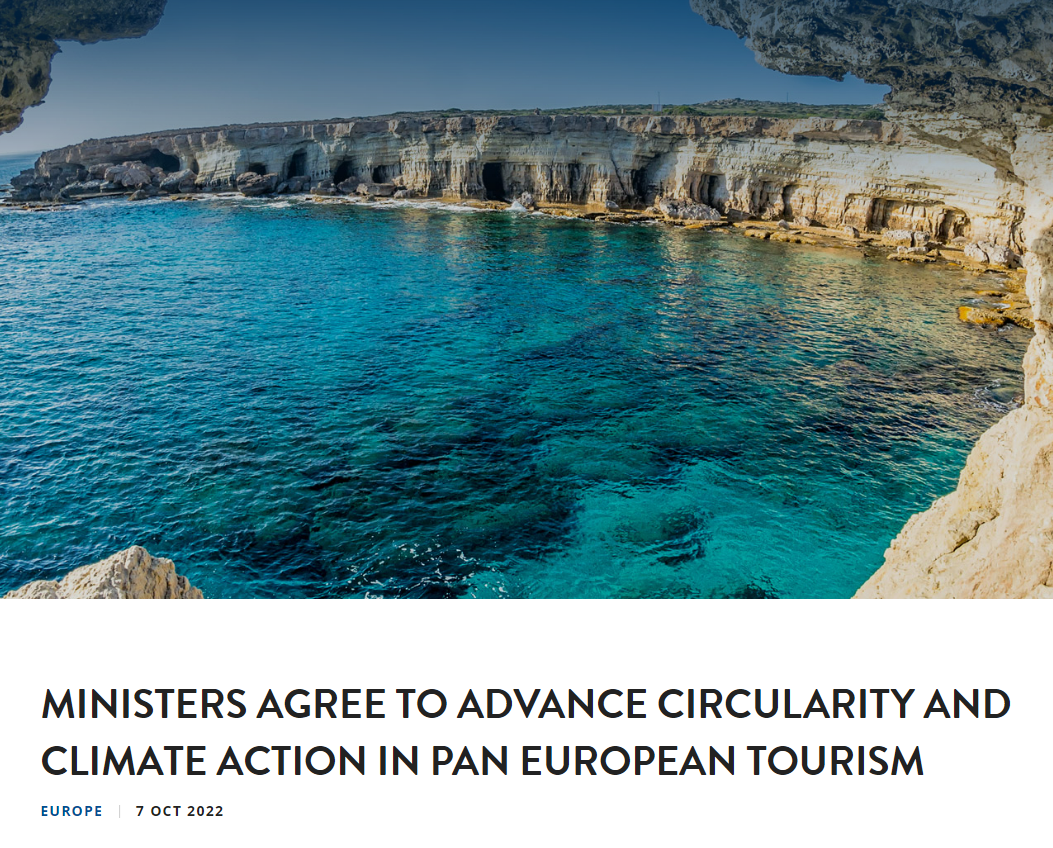Interview with La Bicicleta Hostal on the Global Tourism Plastics Initiative

Question (Q): Why is sustainability important to you?
Answer (A): Sustainability is the key to a better future. Since the beginning of our project back in 2014, conscious of the potential impact of the tourism industry in our surroundings, we decided to establish social and environmental responsibility as the main axis of our architectural and branding design.
Q: What are the benefits of including your commitment to sustainably when communicating with potential visitors?
A: People want to feel part of something bigger and want to ensure their work and lives contribute positively to a better world. As more and more people are becoming aware of the importance of sustainability, the subject is becoming crucial for all businesses, across all industries.
Q: What competitive advantages have you gained in implementing the Global Tourism Plastics Initiative?
A: A commitment to sustainability improves trust and engagement between staff, investors, customers and local communities. Trust and engagement are two of the most valued commodities in the market, they give you an edge over the competition and promote a positive working atmosphere that just seems to make everyone happier and healthier.
Q: Where did you start from and what are your next steps to implement a circular economy of plastics?
A: We started in 2015 by simply separating all of our plastic waste, using refillable cleaning products complemented by a strong internal recycling policy- these practices were rare in Nicaragua at that time. Today we are working on finding refillable hygienic products, we have partnered with a recycling company that offers to exchange plastics for furniture/accessories and we now host two zero waste shops (Granel and Terra verde). We are moving from "recycling your plastic waste" towards "eliminating" single use plastics completely.
Q: Do you have an interesting example/project that you want to share with us?
A: Our proposed partnership with Tableco, a company that creates furniture out of recycled plastic will establish the first collection center for plastic materials in our neighbourhood. The more plastic we collect, the more 'points' we accumulate, which we can then exchange for furniture or accessories for the Hostel.
Q: What challenges have you been confronted with and how did you manage to overcome these?
A: The main challenge is that the fact that we are in a developing country, in the midst of a socio-political, economic and health crisis. We are working towards having the general public accept these new trends in shopping and lifestyle. We are proud to continue pedalling* together, loyal to our initial values and committed to new, greener horizons. (* La Bicicleta means the bicycle)
Q: How did the COVID-19 crisis impact your ambitions?
A: The COVID-19 pandemic meant we had to close our business for several months. After we re-opened we had to make difficult adjustments to ensure and prioritise the safety and health of our clients, workers and providers.
Q: How do you engage with other actors along your value chains to implement the GTPI and sustainability measures?
A: We promote and support local producers while networking to build just and strong relationships with partners and communities. During the political crisis (2018) we held several entrepreneurial fairs in which local entrepreneurs offered their products to guests and the wider community. We have partnered with Terra Verde and Granel, to set up a small zero-waste shop inside our Hostel where we sell everything from bamboo straws to packaging free wholegrains.
Q: How do you measure the impact of these changes?
A:
A) Our own plastic use: we have almost completely eliminated the use of single use plastics by adopting a wide range of business and lifestyle changes which include shopping differently, having a closer relationship with providers and customers. This has decreased our plastic consumption by about 90%.
B) The growth of the zero-waste community: the fact that there are now at least three proper zero-waste shops in the city and that our online community keeps getting bigger and bigger are clear indicators that these changes are generating a snowball effect of change.
Q: What advice would you give to other SMEs to implement these ambitious goals?
A: Be the change you wish to see in the world. Sustainability is a life choice not a business opportunity. If we want real change, then we will have to think and act differently and that means starting from our own practices at home, that we can then escalate to corporate and government level.
---
La Bicicleta Hostal are signatories of the Global Tourism Plastics Initiative, and this interview has been conducted as part of the Global Tourism Plastics Initiative newsletter, in partnership with Sustainable First. Click here to read more about their commitments, and here to read and sign-up to the newsletter.


